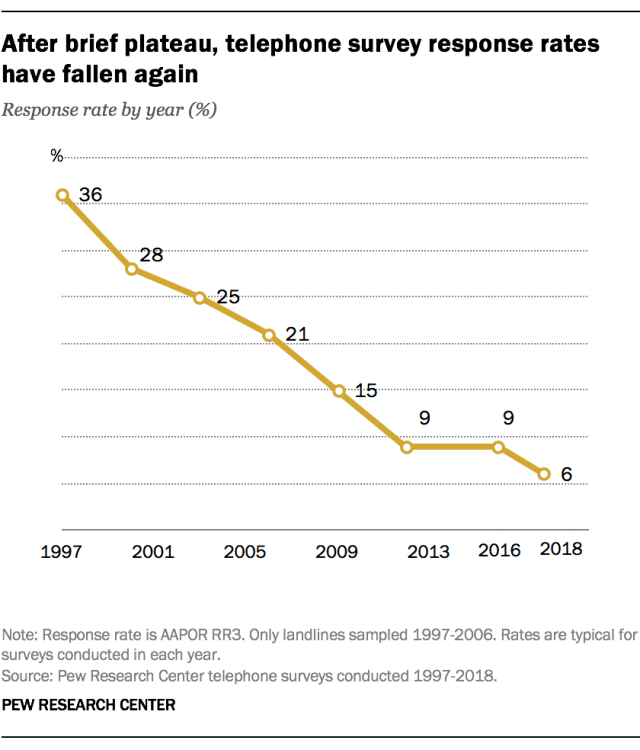I've always wondered about the type of people who take surveys. Who among us would take a random call in the middle of the day from a perfect stranger and spending the next 30 minutes answering dozens of extremely intrusive questions about your personal life and political beliefs?
According to Pew, survey response rates have fallen precipitously in recent years to a new low of 6%: 
From my research, I noticed that a key difference between Liberals and Conservatives is how trusting they are of strangers
My thinking is that if a person is less trusting of others, then they are more likely to use a call blocker on their phone and an adblocker on the Internet. If a stranger does manage to contact them, they are less likely to have a 30 minute chat about all of their most deeply held beliefs.
Indeed, a study recently found that 11.7% of Republicans admitted they would not give their true opinion to a pollster vs 5.4% of Democrats. The top 4 cited reasons were:
A lack of trust in phone polls as truly being anonymous.
An apprehension to associate their phone numbers with recorded responses.
Fear that their responses will become public in some manner.
Fear of reprisal and related detrimental impact to their financial, social, and family lives should their political opinions become publicly known.
These reasons would also apply to online surveys as well, which would explain why there's no significant difference between the results of online and phone surveys. For example, Pew Research will actually contact people in real life (via snail mail or otherwise) and invite them to participate in online surveys.
If the research is correct that Conservatives are less trusting of strangers, does this mean they are less likely to answer (or at least give truthful answers to surveys) and are thus under-sampled by polling institutions? Do pollsters correct for this error?